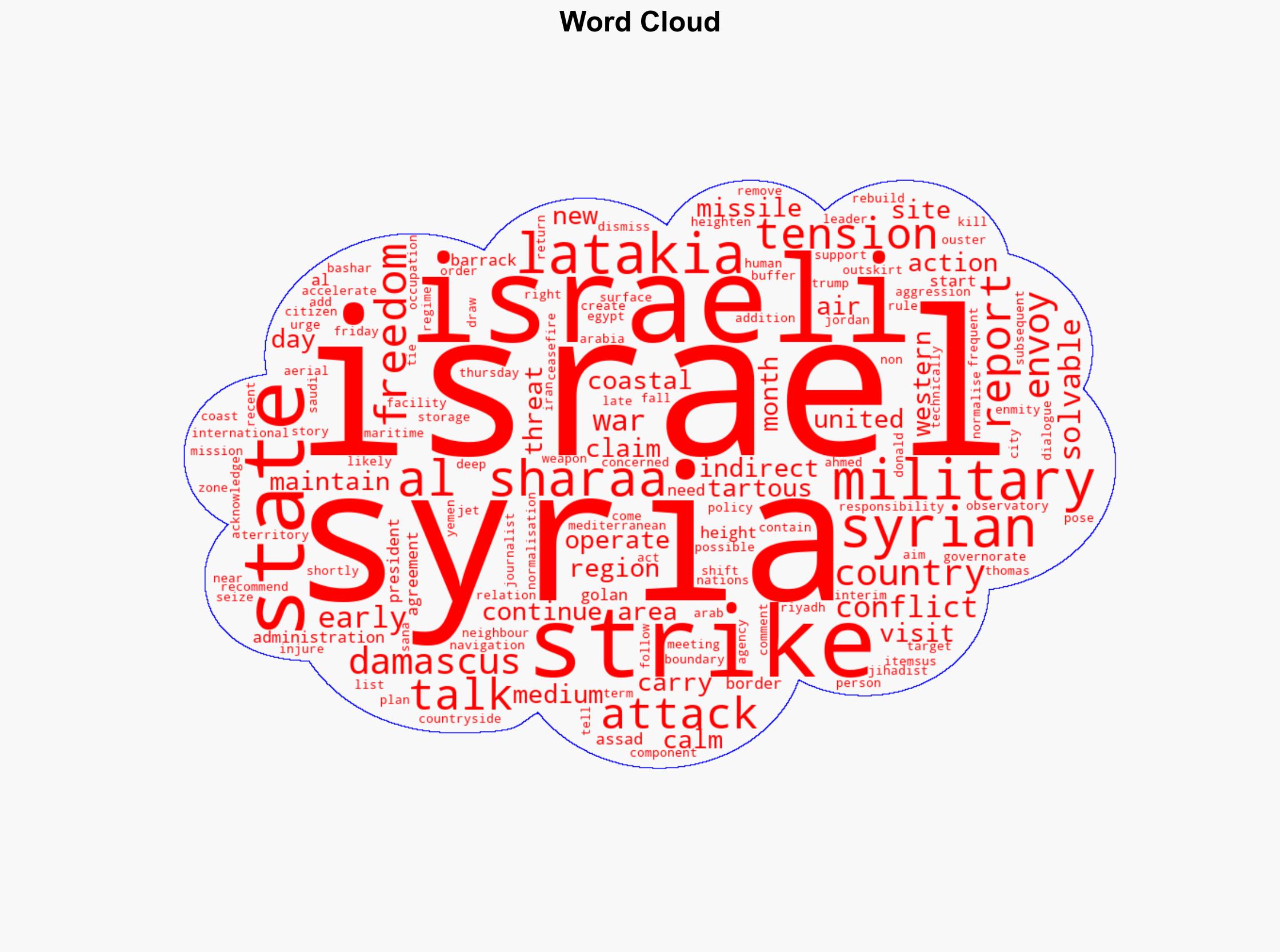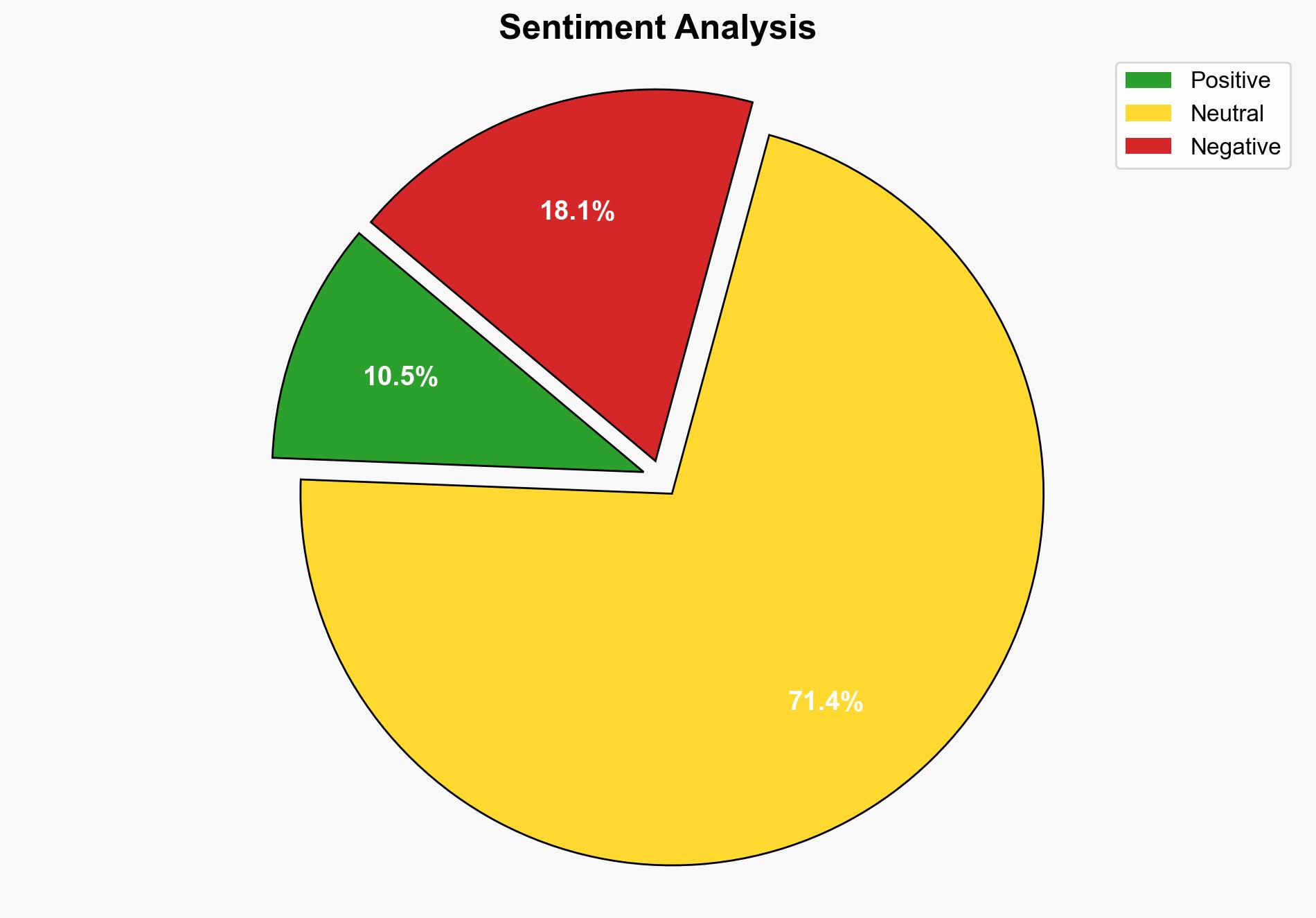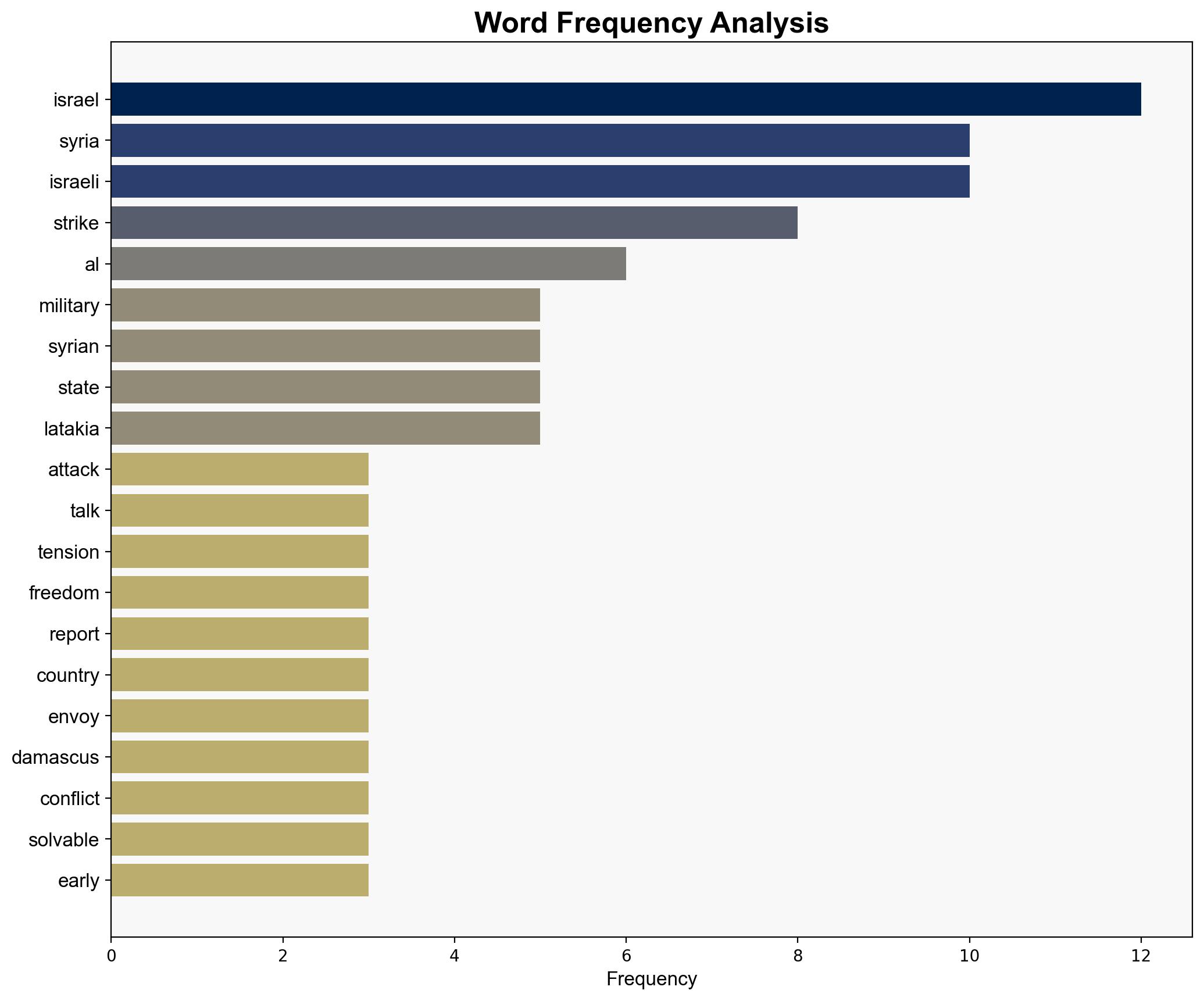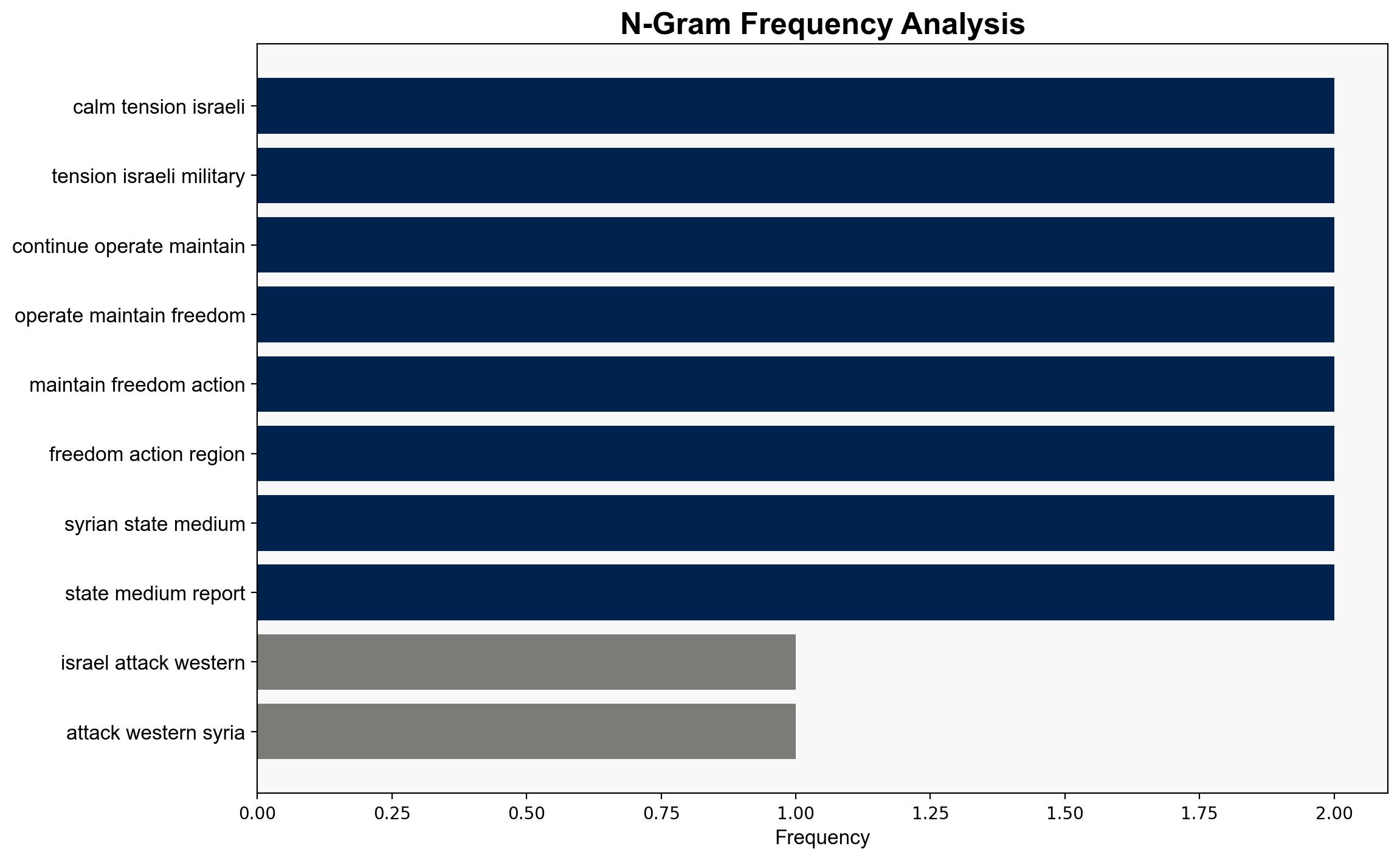Israel attacks western Syria despite recent indirect talks to calm tensions – Al Jazeera English
Published on: 2025-05-30
Intelligence Report: Israel Attacks Western Syria Despite Recent Indirect Talks to Calm Tensions
1. BLUF (Bottom Line Up Front)
Israel conducted airstrikes in western Syria, targeting weapon storage facilities and missile sites near Latakia and Tartous. This action occurred despite recent indirect talks aimed at reducing tensions between Israel and Syria. The strikes underscore Israel’s commitment to maintaining operational freedom in the region and addressing perceived threats to its security and maritime navigation.
2. Detailed Analysis
The following structured analytic techniques have been applied to ensure methodological consistency:
Causal Layered Analysis (CLA)
At the surface level, the airstrikes are a direct military response to perceived threats. Systemically, they reflect ongoing regional power dynamics and security concerns. The worldview underpinning these actions is Israel’s emphasis on proactive defense. Mythically, the narrative of existential threat and defense is prevalent.
Cross-Impact Simulation
The strikes could exacerbate tensions with Syria, potentially affecting neighboring states like Lebanon and impacting broader Middle Eastern stability. Economic dependencies, such as energy routes and trade, may also be influenced by heightened regional instability.
Scenario Generation
Potential futures include escalation into broader conflict, sustained low-intensity skirmishes, or a return to diplomatic engagements. Each scenario carries distinct implications for regional security and international relations.
3. Implications and Strategic Risks
The airstrikes highlight a persistent pattern of military engagement in the region, posing risks of escalation and broader conflict. Emerging threats include potential retaliatory actions by Syrian or allied forces. Systemic vulnerabilities involve the destabilization of regional alliances and economic disruptions.
4. Recommendations and Outlook
- Encourage diplomatic initiatives to resume talks and establish communication channels to prevent further escalation.
- Enhance regional monitoring to detect early signs of retaliatory actions or shifts in military posture.
- Scenario-based projections suggest maintaining a balanced approach to avoid exacerbating tensions (best case) while preparing for potential conflict escalation (worst case).
5. Key Individuals and Entities
Thomas Barracks, Ahmed Al Sharaa
6. Thematic Tags
national security threats, regional stability, military strategy, Middle East conflict





